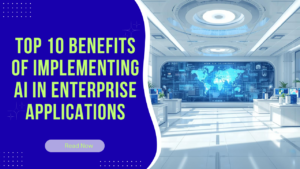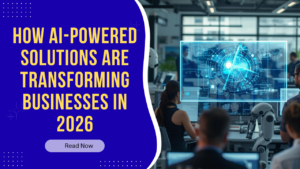As we navigate through the complexities of the digital age, one thing is clear: artificial intelligence (AI) is not just a trend; it’s a transformative force that will redefine industries, economies, and our daily lives. By 2027, the landscape of AI will be vastly different from what we know today, and alarmingly, 99% of people are not prepared for these changes. This blog post will explore the key trends shaping the future of AI, the challenges we face, and how individuals and organizations can prepare for what’s coming.
The AI Revolution: A Market on the Rise
According to recent reports, global spending on AI software is projected to surge from $124 billion in 2022 to $297 billion by 2027, reflecting a compound annual growth rate (CAGR) of 19.1% [1]. Bain & Co. further emphasizes this growth, predicting that the AI market could reach nearly $990 billion within the same timeframe [5]. This rapid expansion is being driven by several key factors:
- Generative AI (GenAI): This subset of AI is expected to dominate the market, with spending projected to grow from 8% in 2023 to 35% by 2027. Companies are increasingly integrating GenAI into their operations to enhance personalization and efficiency [1].
- Widespread Adoption Across Industries: By 2025, 39% of organizations will be experimenting with AI technologies. This trend indicates a significant shift toward adopting high-value use cases that can deliver quick returns on investment [1].
- The Need for Talent: The demand for skilled AI professionals is set to double by 2027, creating a significant talent gap that could hinder innovation and growth [3]

The Challenges Ahead
While the potential for AI is immense, several challenges must be addressed:
- Skill Gaps: The rapid evolution of AI technologies means that many professionals lack the necessary skills to adapt. Reports indicate that India alone will need 1.25 million AI professionals by 2027 [3]. Without adequate training programs and educational initiatives, this talent shortage could stifle progress.
- Ethical Considerations: As AI systems become more integrated into our lives, concerns about bias and misinformation will intensify. Ensuring ethical practices in AI development is crucial to prevent negative societal impacts.
- Regulatory Hurdles: Governments are grappling with how to regulate AI effectively without stifling innovation. Striking a balance between fostering technological advancement and ensuring public safety will be a significant challenge.
Preparing for the Future
To thrive in an AI-driven world, individuals and organizations must take proactive steps:
- Invest in Education and Training: Continuous learning is essential. Upskilling in areas like machine learning and data analysis will be crucial as job roles evolve. Organizations should invest in training programs that equip employees with necessary skills.
- Embrace Ethical Practices: Organizations should prioritize transparency and accountability in their AI implementations. Developing ethical guidelines can help mitigate risks associated with bias and misinformation.
- Foster Collaboration Between Sectors: Partnerships between academia and industry can create robust training programs that equip future professionals with necessary skills. Collaborative efforts can also lead to innovative solutions that address complex challenges.
- Stay Informed About Trends: Keeping abreast of AI developments will help individuals and businesses adapt quickly to changes. Subscribing to industry newsletters or attending conferences can provide valuable insights into emerging technologies.
The Role of Generative AI
Generative AI is poised to revolutionize various sectors by enabling machines to create content, designs, and even code autonomously. This technology has already begun transforming industries such as marketing, where personalized content generation can enhance customer engagement.
Applications of Generative AI
- Content Creation: Businesses are leveraging GenAI tools for automated content generation, enabling them to produce high-quality articles, social media posts, and marketing materials at scale.
- Design and Prototyping: In fields like fashion and architecture, GenAI can assist designers in generating innovative concepts based on existing styles or user preferences.
- Software Development: The emergence of AI-native software engineering means that developers will increasingly rely on GenAI tools to automate coding tasks, enhancing productivity while allowing them to focus on higher-level problem-solving [6].
The Future Workforce
As AI continues to evolve, so too will the roles within organizations. Gartner predicts that by 2027, 80% of the engineering workforce will need to upskill due to the integration of generative technologies into software development processes [6]. This shift emphasizes the need for new educational frameworks that incorporate both theoretical knowledge and practical applications.
Key Skills for Future Professionals
- AI Literacy: Understanding how AI works and its implications for various industries will be essential for all professionals.
- Data Analysis Skills: Proficiency in data analysis tools will become increasingly important as organizations rely on data-driven decision-making.
- Creative Problem-Solving: As routine tasks become automated, human creativity will be a critical differentiator in driving innovation.
The advancements in artificial intelligence by 2027 promise both immense opportunities and significant challenges. While many individuals are currently unprepared for these changes—largely due to skill gaps and ethical concerns—there is still time to act. By investing in education, embracing ethical practices, fostering collaboration between sectors, and staying informed about trends, we can ensure that we are ready for what’s coming.
The future of AI is not just about technology; it’s about people—how we adapt, learn, and innovate in an increasingly automated world. Don’t be part of the 99% who are unprepared; take action now to embrace the future of artificial intelligence
“Artificial Intelligence (AI) has profoundly transformed human life across various domains, enhancing efficiency and convenience in daily activities. From smart home devices that learn user preferences to virtual assistants like Siri and Alexa, AI streamlines tasks, making them quicker and easier In healthcare”
AI algorithms improve diagnostic accuracy and personalize treatment, enabling early detection of diseases such as cancer24. The education sector benefits from AI through tailored learning experiences that cater to individual student needs, fostering inclusivity and accessibility23. However, the rise of AI also brings challenges, including ethical concerns about data privacy and job displacement due to automation45. As AI continues to evolve, its impact on society will likely expand, necessitating careful management to maximize benefits while addressing potential risks.



